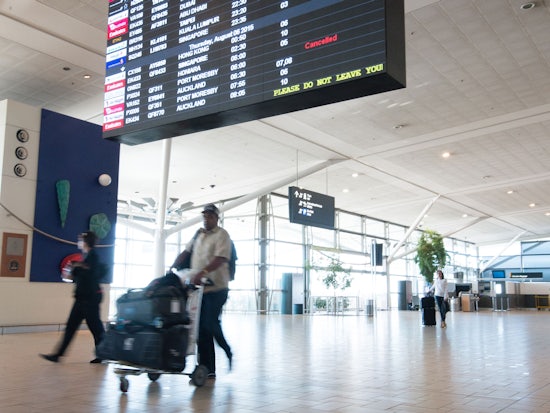Australia’s first dementia friendly airport takes off
Alzheimer’s Australia has named Brisbane Airport as Australia’s first dementia-friendly airport with the launch of an airport guide for travellers with dementia.

Brisbane Airport has been named Australia’s first dementia-friendly airport (Source Brisbane Airport)
Ensuring a Smooth Journey: A Guide to Brisbane Airport for people living with Dementia and their Travel Companions is a step-by-step guide of the airport. It identifies the international dementia friendly symbols and takes users through the different airport zones.
The guide also outlines what to expect in the bag screening area, duty free regulations, customs, quarantine, transfers and immigration, and includes advice from people who have dementia and those who travel with them.
The Queensland University Technology-based Dementia Centre for Research Collaboration: Carers and Consumers (DCRC-CC), who developed the guide has been working with the airport since 2015 to improve the experience of air travel for people with dementia.
“Close to 47 million people worldwide live with dementia, including more than 413,000 Australians, but many still travel. Until now, no guidelines for dealing with such passengers existed for airlines, airports or carers,” says Professor Beattie, Director of the DCRC-CC, adding a previous DCRC-CC study found the most challenging part of air travel for people with dementia was managing at the airport.
Suggestions in the guide include visiting the airport beforehand to become familiar with the layout. “It can also be helpful to do a trial run with a short trips,” says Prof Beattie. “Another good idea is to plan flexible stopovers to allow gradual adjustment to different time zones. Even the choice of seating can be helpful.”
Julieanne Alroe, Brisbane Airport Corporation (BAC) CEO and Managing Director, says the resources kit would complement Brisbane Airport’s existing Disability Access program and be integrated into customer service training for airline staff and other airport workers, including retailers, security, cleaners and volunteers.
Professor Beattie also hopes the guide and staff training material can be adapted for use in other airports in Australia and worldwide, and in other formats, such as a mobile phone app.

Alzheimer’s Australia CEO Maree McCabe says the Australian-first is a
major step forward in making Australia more dementia-friendly.
“Australia’s first dementia-friendly airport is a fantastic achievement
and Alzheimer’s Australia congratulates everyone who has worked to see
it become a reality,” she says.
“People living with a diagnosis of dementia can still enjoy travel,
and may require some extra assistance to do so. This guide is fantastic
in enabling people living with dementia and their carers to continue to
do the things they enjoy, like travel, while assisting in navigating the
airport, preparing and planning for travel.”
Ms McCabe points out no matter the size of the organisation, dementia-friendly principles could be achieved.
“Dementia-friendly may include changes to design, layout, signage and
way finding or education of staff to be able to recognise and better
assist a person living with dementia,” she says. “We expect this is just
the beginning and look forward to working with many more organisations,
large and small, to think about how they can become more
dementia-friendly.”
The guide can be accessed online at the Dementia Centre for Research Collaboration as well as Brisbane Airport Corporation.























